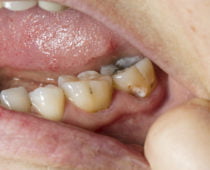
Last Updated on 18th September 2019
Three hours of computer use each day is enough to put teenagers at risk of poor oral health says a new study revealed by the Evesham dentists at Evesham Dental Health Team on Broadway Road.
An examination of more than 1,500 18-year-olds showed those who spend more time on computers are significantly more likely to neglect their oral health.
Researchers found those who spent longer on a computer were less likely to brush their teeth, floss and visit the dentist. The results are particularly worrying for boys, where twice-daily brushing dropped below 50% for those with excessive computer use.
Further findings discovered that youngsters with excessive computer use are up to 25% more likely to suffer from bleeding gums, and almost twice as likely to be absent from school because of dental pain.
Vital daily brushing routine
- Brushing for two minutes last thing at night and then first thing in the morning before breakfast with fluoride toothpaste is key to maintaining good oral health.
- Daily brushing is important because it removes plaque. If plaque isn’t removed, it continues to build up, feeding on the bits of food left behind and causing tooth decay and gum disease.
- Cleaning in between our teeth, using interdental brushes, dental floss, water or air flossers, loosens bacteria and food debris.
Dr Nigel Carter OBE, Chief Executive of the Oral Health Foundation, said: “There is an urgent need for more education; both on the consequences of excessive computer use, and the benefits of maintaining good oral hygiene. These need to be communicated to children and families before it begins to negatively affect their health and wellbeing.”
Further findings from the study revealed the longer teenagers spend on a computer, the more sugar they consume.
The amount and frequency of fizzy drinks, juices with added sugar and snacking all increased for those with more than three hours of computer time a day. These adolescents were also more likely to skip breakfast and eat less fruit and vegetables.
“Tooth decay is the most common chronic disease for children in the UK and it is caused by having too much sugar,” added Dr Carter.
“By cutting out snacking and keeping sugar consumption to mealtimes, teeth are able to recover and are far less prone to tooth decay. Replacing sugar with healthier options should also be highly encouraged. Fizzy drinks cause a real risk and should be replaced with milk or water as tooth-friendly alternatives.”
In England, nearly a half (46%) of 15-year-olds and a third (34%) of 12-year-olds have obvious signs of tooth decay.
Concerned about your teenager’s oral health?
Please contact us as our door is always open to new patients and their children from across Evesham, Pershore, Stratford and Worcester.
References
- Olczak‐Kowalczyk, D., Tomczyk, J., Gozdowski, D. and Kaczmarek, U. (2019). Excessive computer use as an oral health risk behaviour in 18‐year‐old youths from Poland: A cross‐sectional study. https://doi.org/10.1002/cre2.183
- Public Health England, Health matters: child dental health, https://www.gov.uk/government/publications/health-matters-child-dental-health/health-matters-child-dental-health
What is a geographic tongue?
Although you may not have heard of geographic tongue, it is a common condition – and one that often appears among the most frequent dental searches on the internet, explain our Evesham dentists, Richard Colebourne, Aleksandra Rozwadowska and Sarah Moore.
Geographic tongue can appear on the top, sides and underneath your tongue. It develops irregular, smooth, red areas, which may look like the outline of a map, and there are usually wavy white lines next to the red patches.
You may notice that after a few weeks or months the position of these lines and red patches changes.
The UK’s leading dental health charity, the Oral Health Foundation, has a series of helpful articles that cover all manner of dental conditions and treatments. So, if you ever find anything unusual in your mouth and want an answer out of surgery hours, this is the site to visit for expert help and guidance.
Speak to our helpful team
During our opening hours, please call us, as our friendly front of house team is always happy to answer dental questions from patients, who visit us from across Worcestershire.
Why does it happen?
Geographic tongue occurs because of the way the old surface of the tongue replaces itself in that the top layer of ‘skin’ does not come away evenly. In some parts the ‘skin’ comes away too early and so leaves a red, sore area like a scratch on the skin. In other places the skin stays on too long and looks white.
The red areas, because they are thin, can sometimes become infected with thrush (candida) and feel sore. Thrush is very common in mouths.
Who does it affect?
It affects all age groups and you may have first noticed it as a child. It is not something that you can pass on to other people but it can run in families. It is not an infection.
What makes it worse?
As the red patches are thin and raw, they tend to be painful when you eat acidic things like citrus fruit or spicy foods – especially chillies. However, these do not make the condition itself worse. You will soon notice which particular foods make the condition more uncomfortable or sore.
Do I need any special tests?
No. Evesham Dental Health Team or your doctor can diagnose the problem just by looking at your tongue.
How is it treated?
Unfortunately, there is no treatment. Sometimes treatments for thrush can ease the discomfort, for example, miconazole gel, which can be bought at the pharmacist.
Geographic tongue will never become cancerous.
What should I do if it gets worse in any way?
Ask one of our Evesham dentists or your doctor to refer you to hospital.
Welcoming new private patients
Our Broadway Road dental practice welcomes new patients – please contact us for details or to book.










